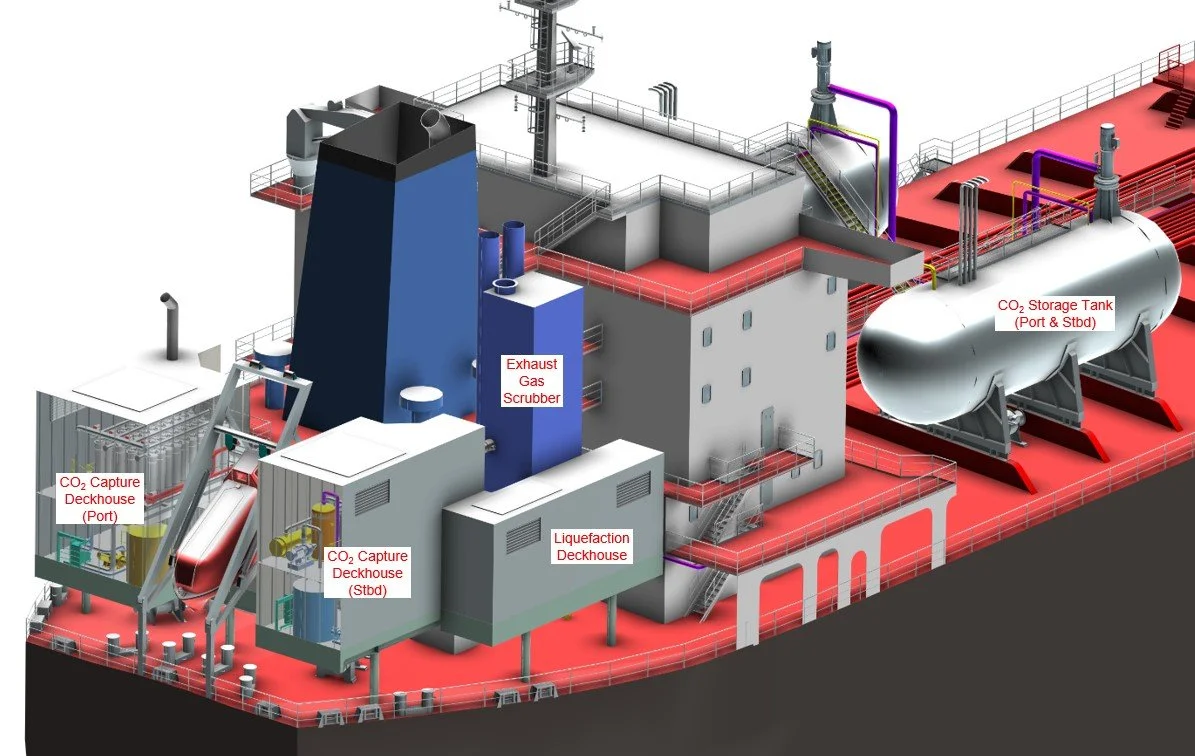OCCS
Onboard Carbon Capture and Storage
In 2024 Aptamus was funded by the U.S. Maritime Administration (MARAD) to conduct a study into the feasibility of installing onboard carbon capture and storage (OCCS) on a typical commercial tanker. The commercial tankers at the focus of this study are the Medium-Range (MR) tankers in OSG’s Jones Act fleet. Such tankers are no different than most ships in that they were originally designed for a specific mission and range, with little margin for the addition of systems requiring significant space or energy throughout their service life. Therefore, the integration of OCCS systems onboard existing ships is expected to be a challenge due to limited available space and the need for significant additional electrical generating capacity. One promising approach for maritime application of CCS is the use of Hollow Fiber Membrane Contactors (HFMC) technology, which is known for its relatively low energy requirements and compact size. Implementing HFMC technology on an MR tanker could be a feasible approach and was therefore chosen as the basis for this study.
The CCS process is divided into three stages: 1) conditioning the exhaust gas, 2) capturing the CO2 using amine-based technology, and 3) storing the liquefied CO2 until it can be offloaded in port. The study’s final report highlights several technical challenges, including the need for efficient heat management, space constraints for equipment installation, and uncertainty with CO2 liquefaction at sea. The potential financial benefits from the 45Q tax credit (see Section 5.1 of the report for a description of this program) are also discussed, but challenges remain in meeting the annual statutory capture requirement of 12,500 tons of CO2. Finally, the report emphasizes the need for further engineering studies and regulatory alignments to ensure safe and effective integration of CCS systems into existing commercial ship operations.
This study is based on calculations and design work performed by Ionada Carbon Solutions LLC, a maker and innovator of Hollow Fiber Membrane Contactors (HFMC) technology for shipboard carbon capture.




